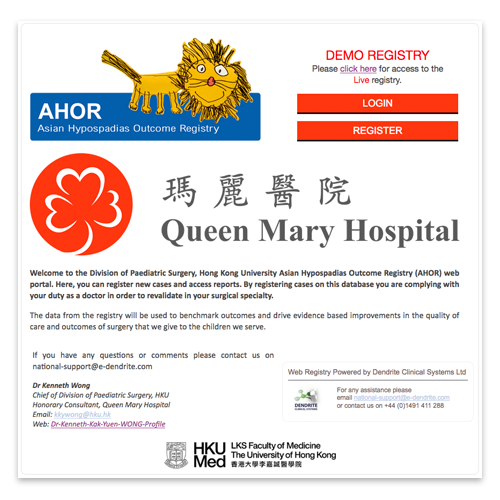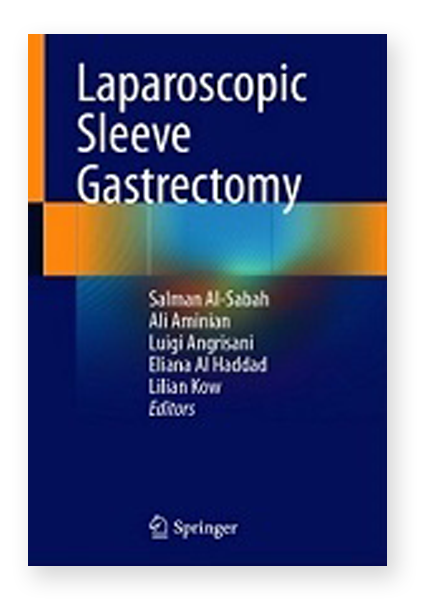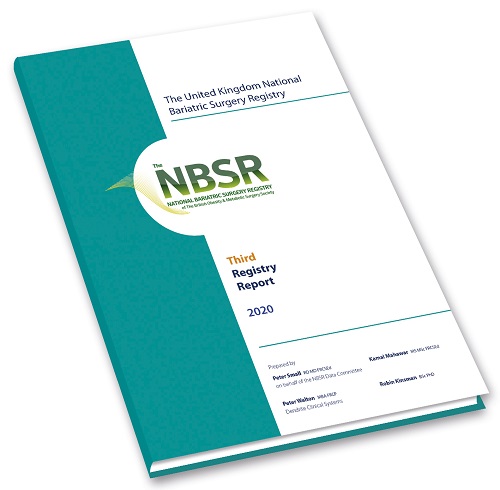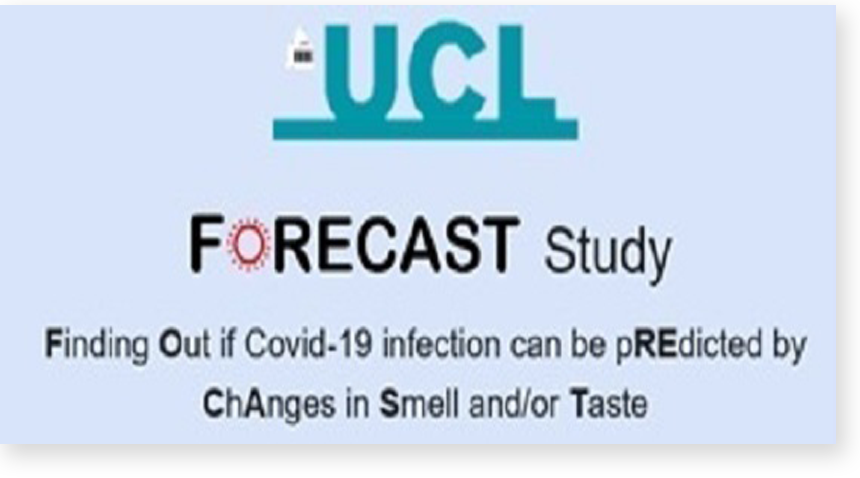Dendrite and Queen Mary Hospital (Hong Kong) launch Asian Hypospadias Outcome Registry
 Dendrite Clinical Systems and the Queen Mary Hospital in Hong Kong have launched the Asian Hypospadias Outcome Registry (AHOR), is a prospective web-based patient registry that will collect, record and analyse the treatment and outcomes of patients undergoing surgical repair.
Dendrite Clinical Systems and the Queen Mary Hospital in Hong Kong have launched the Asian Hypospadias Outcome Registry (AHOR), is a prospective web-based patient registry that will collect, record and analyse the treatment and outcomes of patients undergoing surgical repair.
Hypospadias is one of the most common congenital anomalies in males, in which the opening of the urethra is on the underside of the penis. The condition is typically characterised by proximal displacement of the urethral opening, penile curvature, and a ventrally deficient hooded foreskin. In about 70%, the urethral meatus is located distally on the penile shaft; this is considered a mild form that is not associated with other urogenital deformities. The remaining 30% are proximal and often more complex1. The prevalence is highest in North America, 34.2 per 10,000 births (range 6–129.8) and lowest in Asia, i.e., 0.6–69 per 10,000 births2.
“We are delighted to launch the first hypospadias registry in Asia,” said Dr Peter Walton, Managing Director of Dendrite Clinical Systems. “By collecting and recording data on procedures and outcomes, researchers from the Queen Mary Hospital will be able to determine the most effective treatment for this condition.”
The data from the registry will be used to benchmark outcomes and drive evidence-based improvements in the quality of care and outcomes of surgery. Over time the registry will report on patient demographics, procedure type, length of stay, complications and functional outcomes, as well as improvements in the patients’ quality of life.
To better understand current surgical practice and outcomes in Hong Kong, this online registry was developed by Dendrite using their “Intellect Web” software. This allows users to enter patient data online, using a range of modern html-5 compatible web browsers, without the need to install additional software or perform any complex system configurations. AHOR will initially be a Hong Kong registry, but there are plans to extend the registry to become a pan-Asian Registry.
References
- Duckett JW., Jr Hypospadias. Pediatr Rev. 1989;11:37–42
- Springer A, van den Heijkant M, Baumann S. Worldwide prevalence of hypospadias. J Pediatr Urol. 2016;12(152):e151–e157.
 Dendrite Clinical Systems is delighted to report that our Managing Director, Dr Peter Walton, has published a chapter discussing the value of clinical registries in new publication on Laparoscopic Sleeve Gastrectomy (LSG). In his Chapter, Dr Peter Walton outlines value of national bariatric registries and their capability to deliver evidence on a global basis, as well as providing some practical perspectives on best practice when setting out to start a national registry and how to keep a good registry going.
Dendrite Clinical Systems is delighted to report that our Managing Director, Dr Peter Walton, has published a chapter discussing the value of clinical registries in new publication on Laparoscopic Sleeve Gastrectomy (LSG). In his Chapter, Dr Peter Walton outlines value of national bariatric registries and their capability to deliver evidence on a global basis, as well as providing some practical perspectives on best practice when setting out to start a national registry and how to keep a good registry going. Dendrite Clinical Systems and the Institute for Health Research (IGES) in Berlin, Germany, have initiated the Outpatient Treatment of COVID-19 Infections (ABC-19) study, to record data on the treatment of COVID-19 patients and discover more about the outpatient course of the disease, the individual risk factors of patients that contribute to severe COVID-19 courses and the procedures of general practitioners (GPs).
Dendrite Clinical Systems and the Institute for Health Research (IGES) in Berlin, Germany, have initiated the Outpatient Treatment of COVID-19 Infections (ABC-19) study, to record data on the treatment of COVID-19 patients and discover more about the outpatient course of the disease, the individual risk factors of patients that contribute to severe COVID-19 courses and the procedures of general practitioners (GPs).
 Researchers at the University College London and University College London Hospitals NHS Foundation Trust), London, UK, have reported that the vast majority of participants with new onset loss of smell were positive for COVID19, and this acute loss of sense of smell needs to be considered globally as a criterion for self-isolation, testing and contact tracing in order to contain the spread of COVID-19.
Researchers at the University College London and University College London Hospitals NHS Foundation Trust), London, UK, have reported that the vast majority of participants with new onset loss of smell were positive for COVID19, and this acute loss of sense of smell needs to be considered globally as a criterion for self-isolation, testing and contact tracing in order to contain the spread of COVID-19.
 Dendrite Clinical Systems’ innovative “Intellect Web” software has been chosen by an international group of 17 leading diabetes experts from the multidisciplinary Diabetes Surgery Summit (DSS), as the platform on which the CoviDiab project will establish a Global Registry to collect new cases of diabetes in patients with COVID-19.
Dendrite Clinical Systems’ innovative “Intellect Web” software has been chosen by an international group of 17 leading diabetes experts from the multidisciplinary Diabetes Surgery Summit (DSS), as the platform on which the CoviDiab project will establish a Global Registry to collect new cases of diabetes in patients with COVID-19.


